August 2025
THE PHAHAMA GRAIN PHAKAMA (PGP) FARMER DEVELOPMENT PROGRAMME (FDP) SCHEDULES REGULAR FARMERS’ DAYS. THESE EVENTS ARE NOT ONLY A PLACE WHERE KNOWLEDGE CAN BE TRANSFERRED, BUT A GREAT PLATFORM FOR FARMERS TO COME TOGETHER, SHARE IDEAS AND FIND SOLUTIONS TO COMMON PROBLEMS. IT ALSO OFFERS A NETWORK BUILDING OPPORTUNITY FOR FARMERS AND ROLE-PLAYERS IN THE AGRICULTURAL AND SERVICES SECTOR.
FARMERS’ DAYS FROM 10 MAY TO 10 JUNE
Four successful farmers’ days were arranged by these PGP’s regional offices during this period:
Dundee
More than 80 farmers attended the event in the Doornkop area near Dannhauser, which was attended by farmers from the Sleevedonald, Doornkop, Rutland and Newcastle study groups. The Osizweni Study Group, which includes the KwaMhlaba and Dicks study groups also grabbed the opportunity to expand their agricultural knowledge. Stakeholders from Pannar and the local Department of Agriculture and Rural Development (DARD) employees also attended the event.
From a PGP perspective, farmers were encouraged to join study groups. They were also advised to diversify – not only other grain crops but livestock as well, to spread the risk – in the light of the challenges presented by climatic conditions this season.
Some of the other speakers were:
Kokstad
This event was organised by the KwaZulu-Natal DARD in collaboration with the greater Kokstad Municipality. About 70 farmers attended this farmers’ day. The stakeholders that attended the event were Kynoch, Kokstad Milling, CEDARA, Pannar and Grain SA.
Pannar was represented by Reggie Mchunu, who discussed the importance of soil analysis to determine what is required in the soil, the timing of planting and knowing what seed variety to plant. Ms Dawn Simangele (DARD) applauded the work being done in the area.
Mbombela (2)
Although not all the stakeholders could attend the two farmers’ days in this region, 254 farmers who are eager to improve their agricultural knowledge, attended these two days. It was a wonderful opportunity for farmers who had a successful season to share with each other the production practices they followed to achieve a good yield.
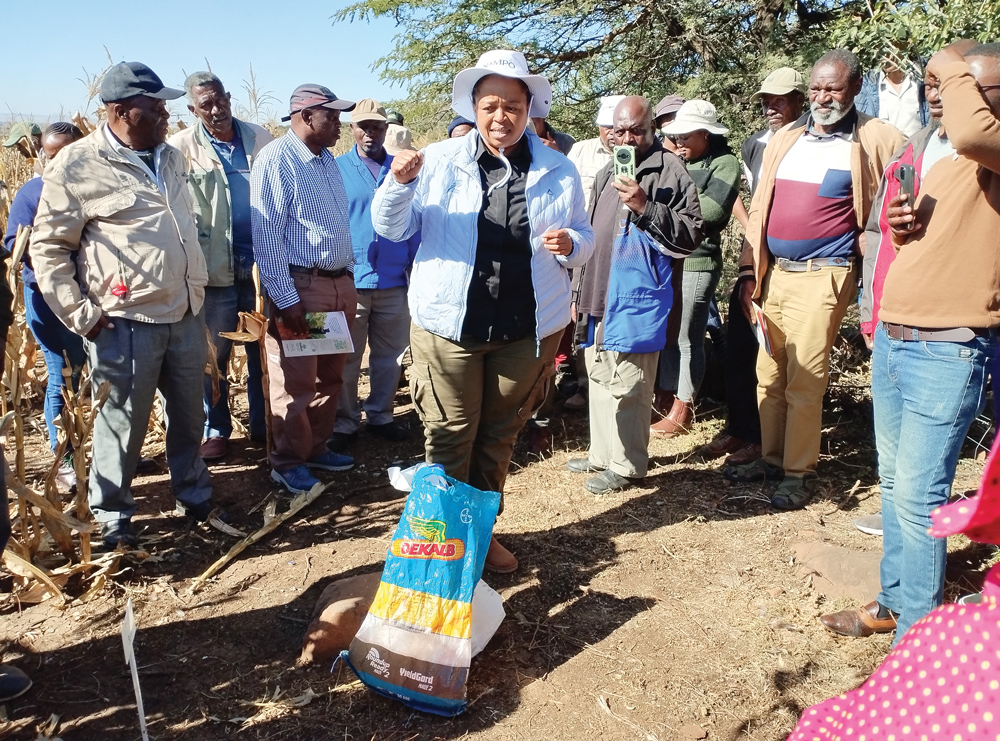
Phumzile Ngcobo from PGP discussed good agricultural practices, such as conserving the soil through the use of hand planters and minimum or no-till planters.
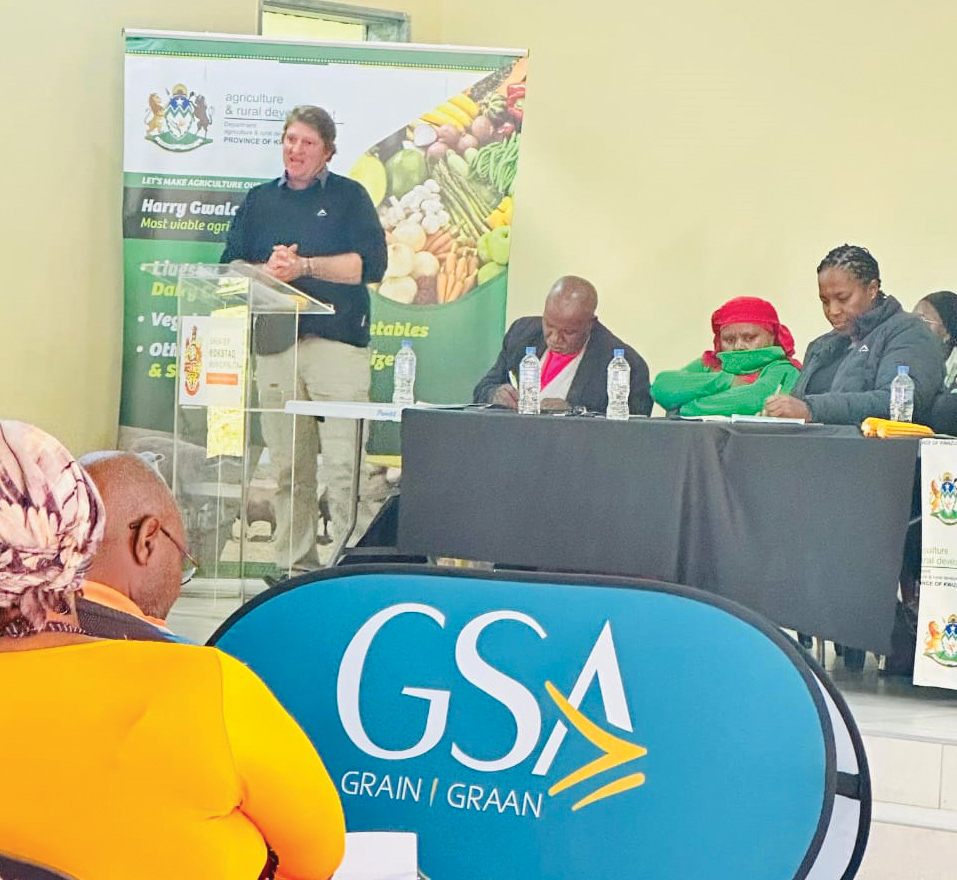
Eric Wiggill, regional development manager at PGP’s Eastern Cape offices, focussed on the BA Programme and Grain SA membership.
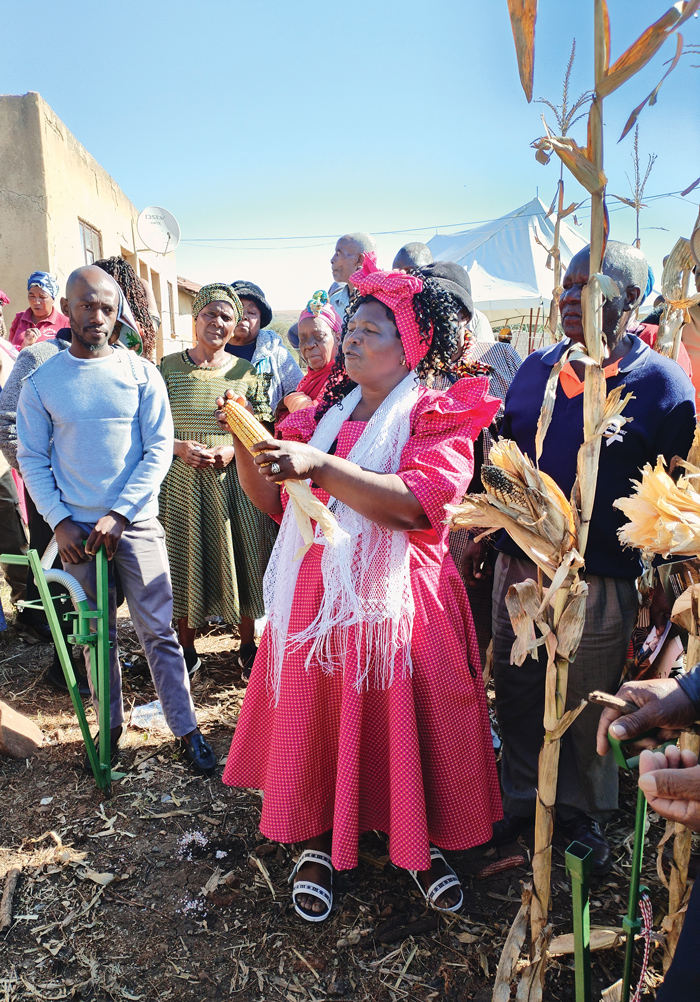
The trial plot planted comprised of 15 cm, 30 cm and 50 cm intra-row spacing, with inter-row spacing of 90 cm. The consensus between the farmers was that intra-row spacing of 30 cm realised better yields.
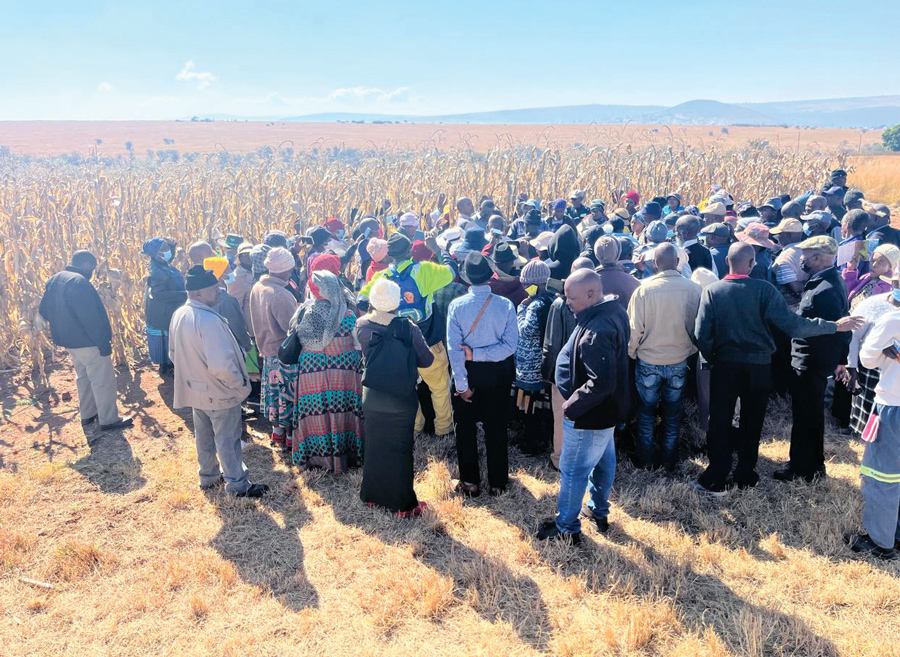
Some of the farmers who attended one of the farmers' days in Mpumalanga.
Over this period (10 May to 10 June), a total of 69 farm visits and 59 study group visits were done. Here are some of the highlights and difficulties farmers experienced.
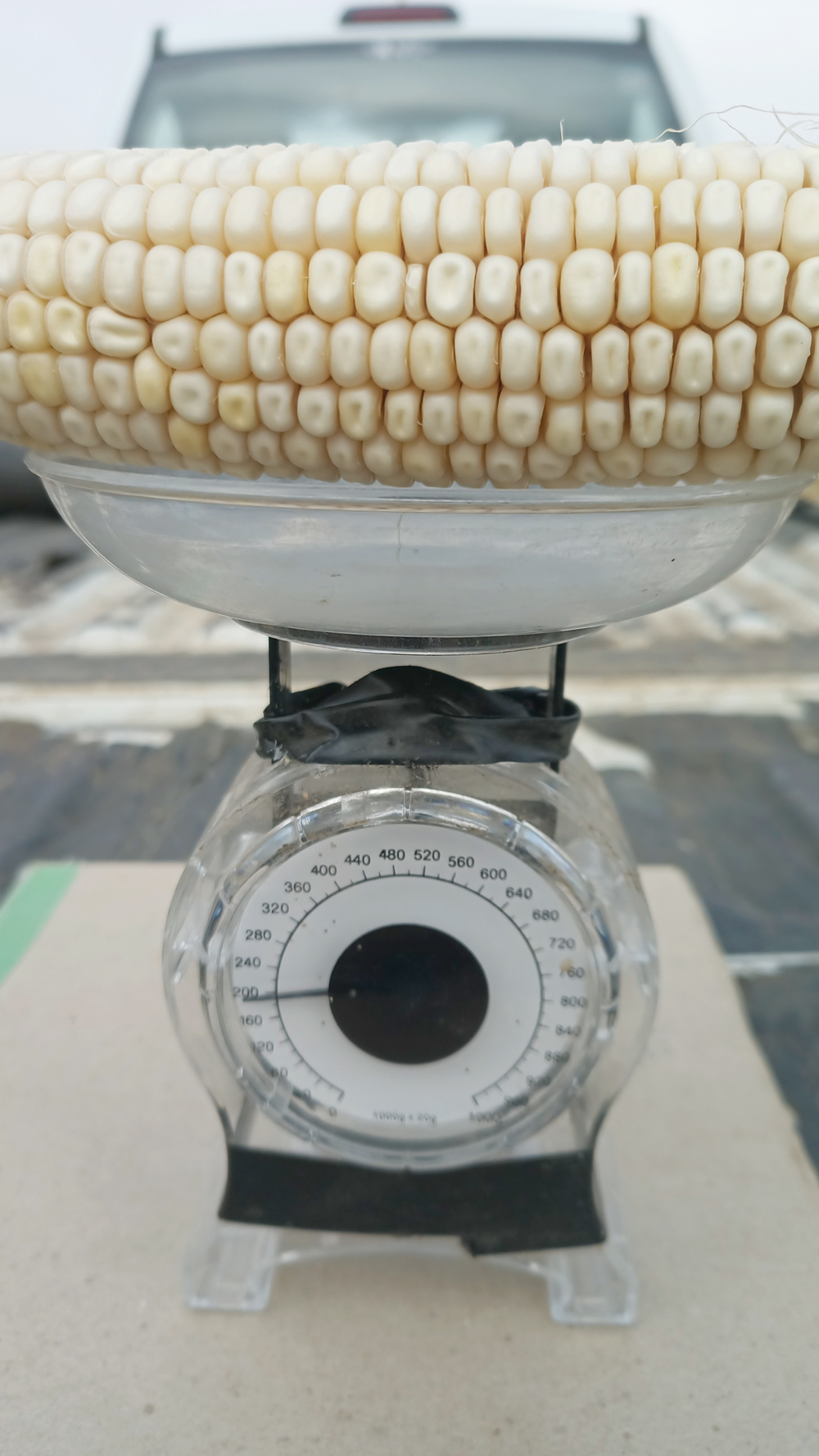
A yield test was conducted on farmer TR Shelembe’s maize. If the kernels contain a high moisture percentage, it could result in a slightly inflated estimate – however, it provides an approximate indication.
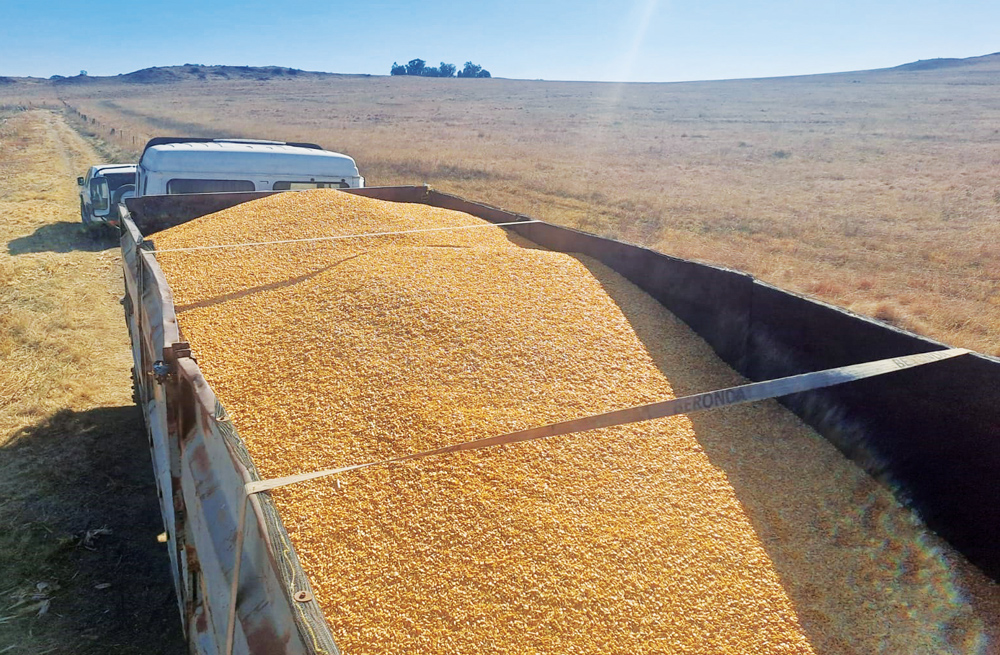
One of the finalists from the Free State, Jabu Matshinini, delivered 74 t of maize after harvesting 9,6 ha. His soybean lands were very wet and had little time left before the seeds would start popping open, causing significant losses.
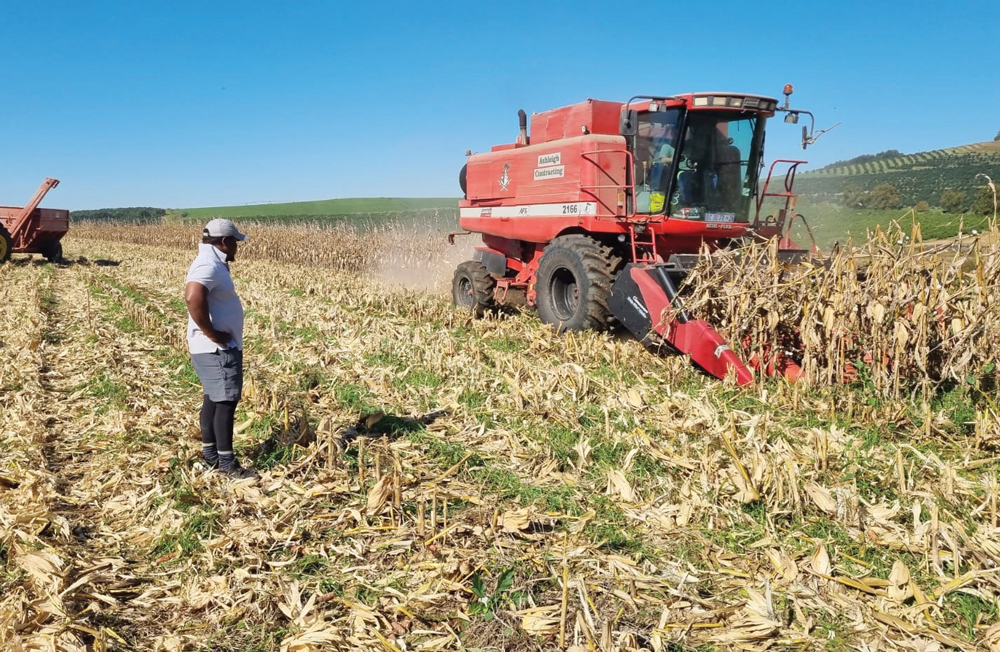
Harvesting was in full swing on the farm of farmer Jeff Hlela from the Kokstad region. Unfortunately a loss of 3 ha of maize was discovered as a result of theft.
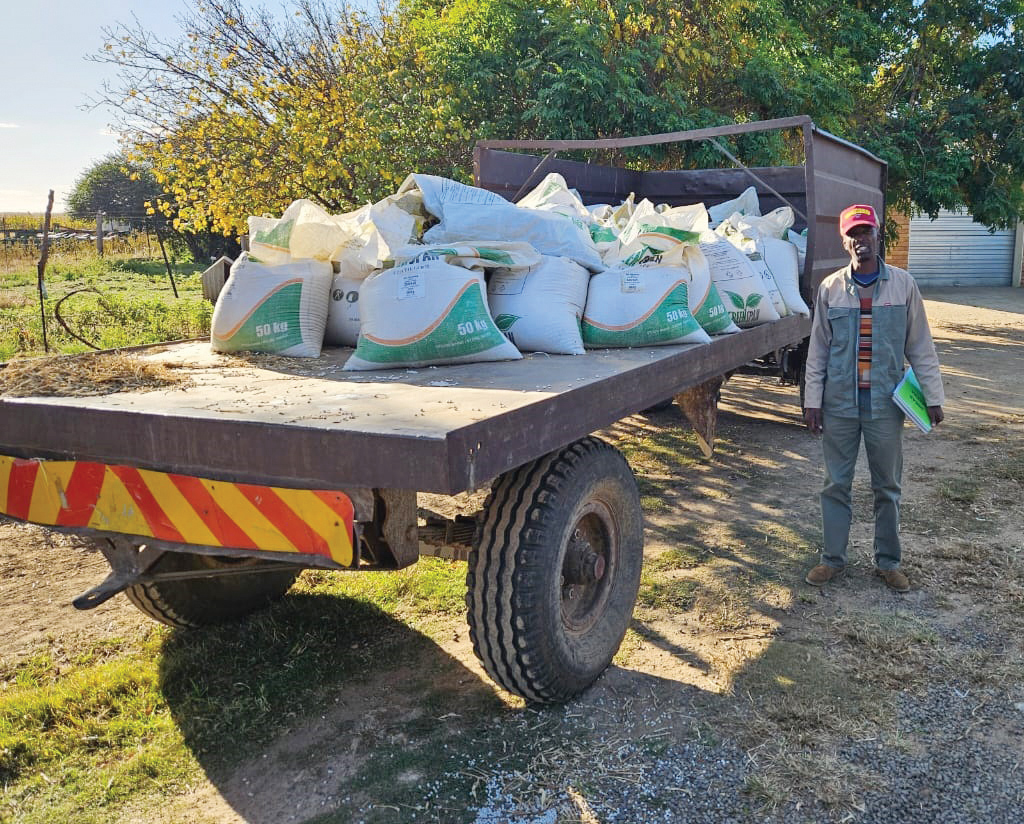
Organ Serema, a farmer from North West, completed the threshing of his small white beans. The estimated 15 tons will be picked up by Schoeman Boerdery.
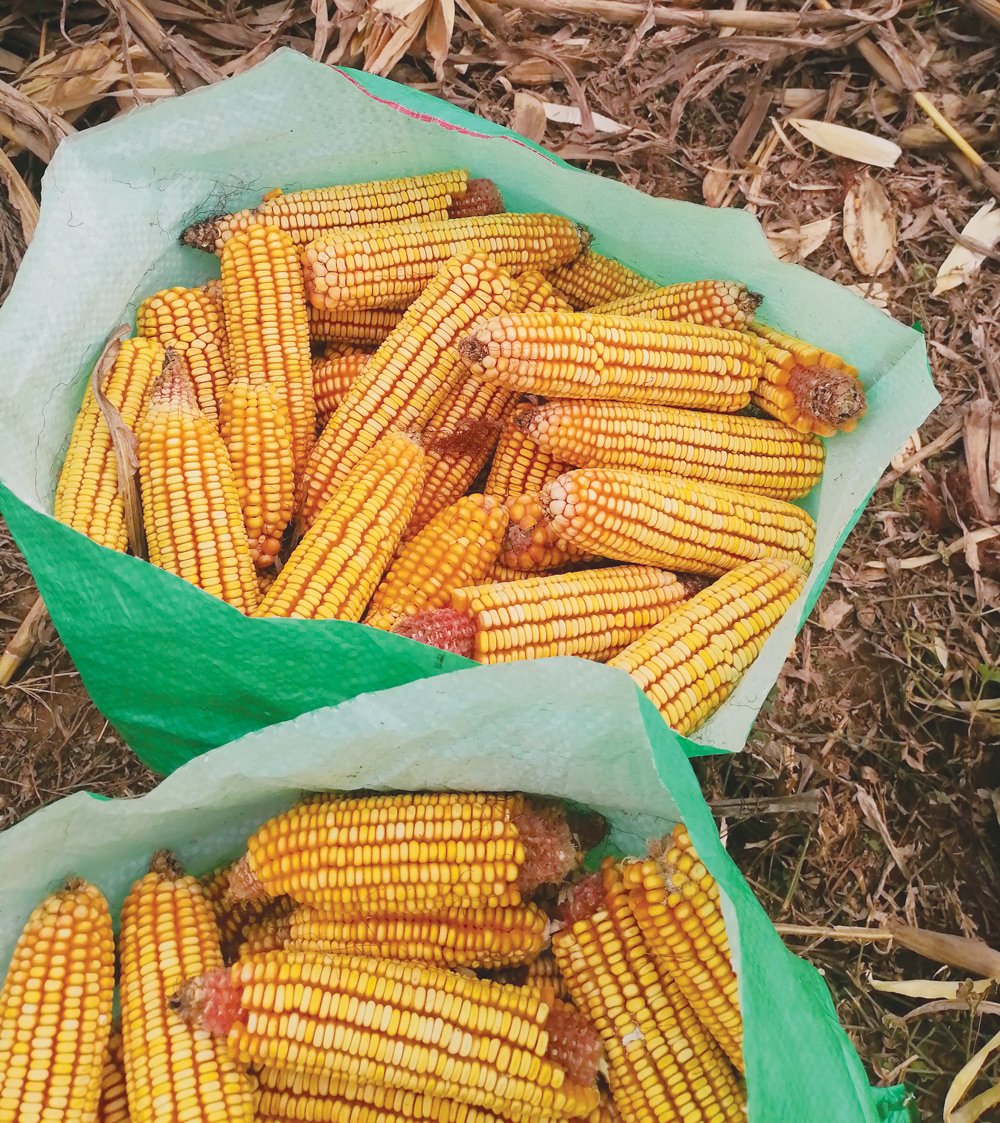
For the Uphuzane Study Group in the Dundee region, the season was characterised by difficult climatic conditions during the planting and growth stages. Excessive rainfall resulted in moulding and rotting of some varieties, while the alternating dry and wet spells in season have also given rise to maize weevils.
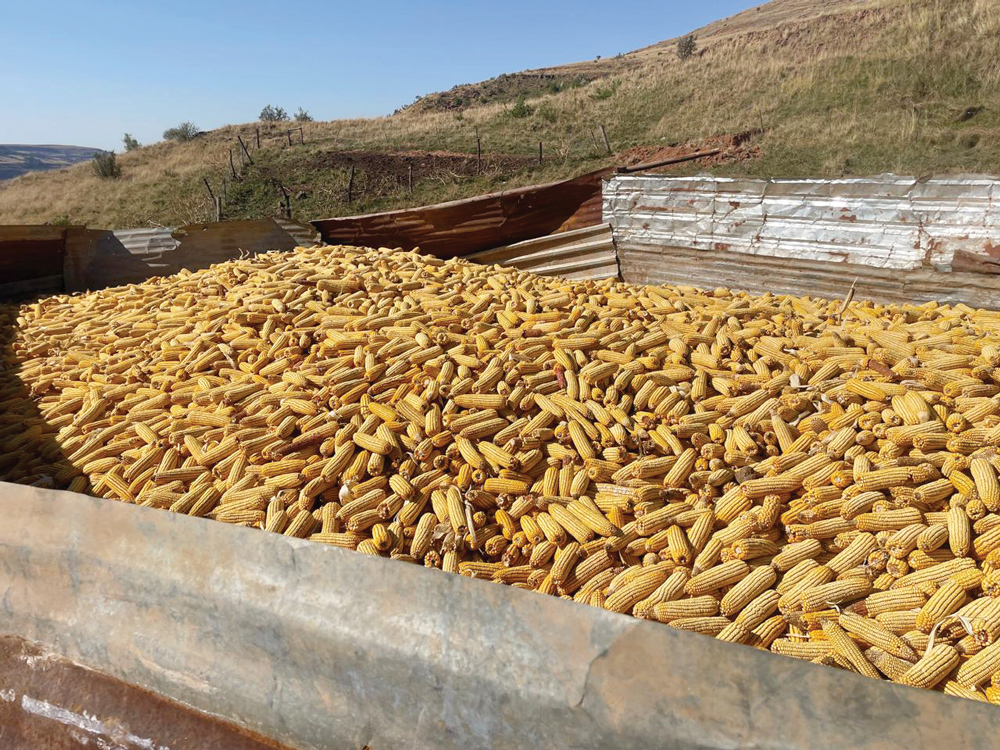
The harvested maize of Mkhombiseni Hlongwane from the Isandlwana Study Group – harvested from 1 ha in the Bergville area.
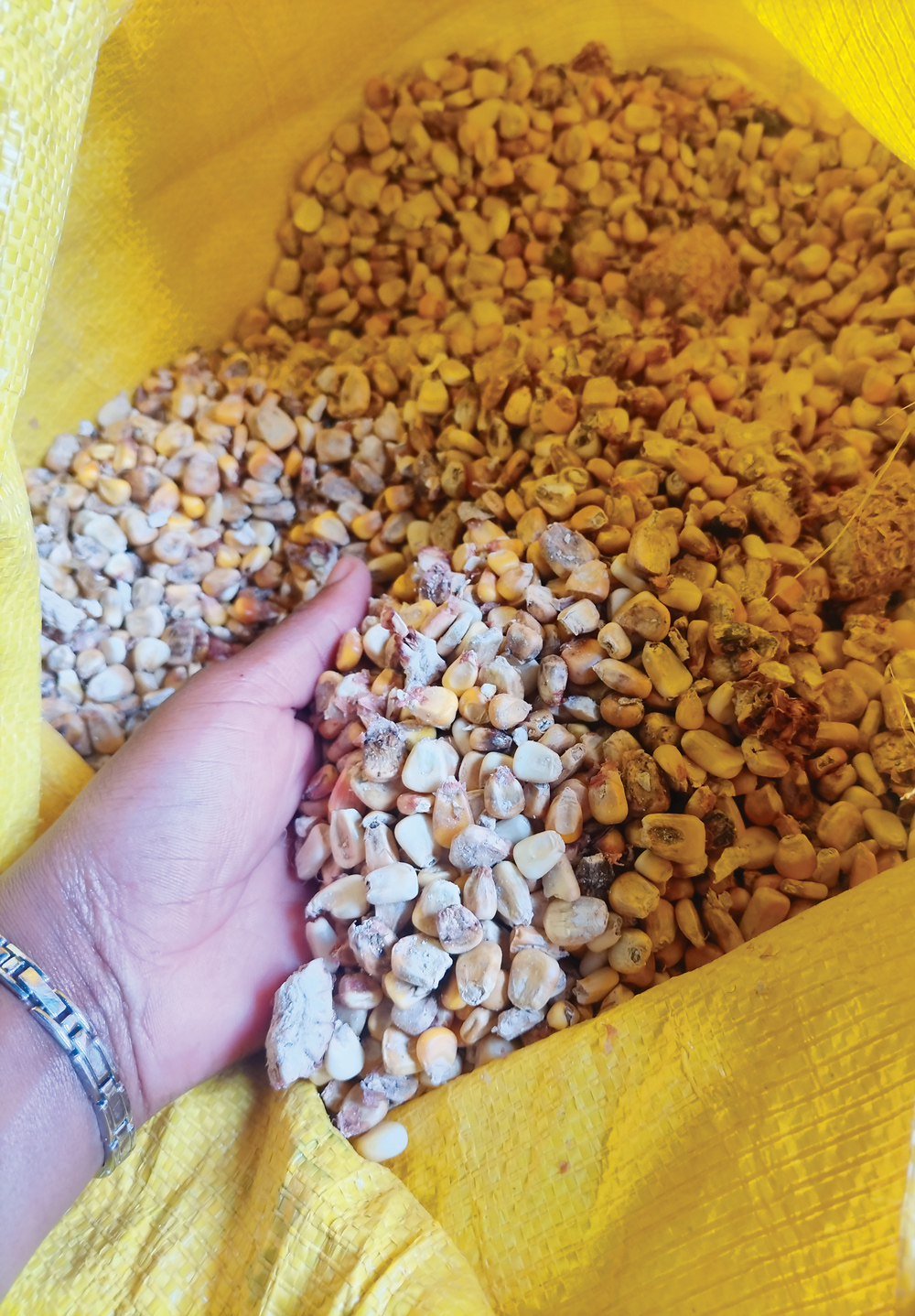
Farmers from the Mabhula Maize Project Study Group were advised to separate the damaged maize from the good maize to prevent contamination.
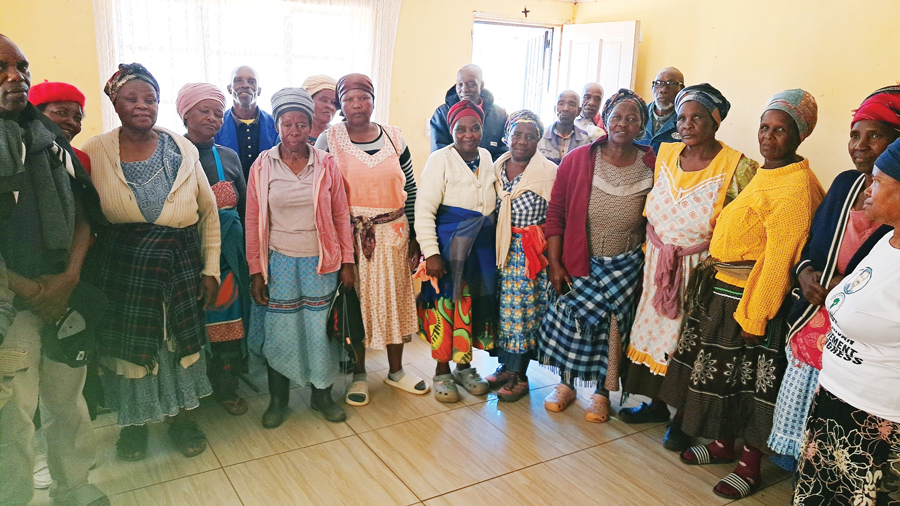
Apart from the 18 members who attended the Lower Tsistana Study Group, there were also past members who attended and some new faces who wanted to join. Climate, soil requirements of maize and harvesting and storage were discussed.
Publication: August 2025
Section: Pula/Imvula